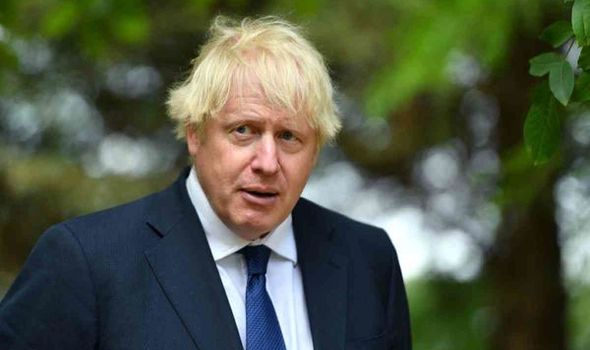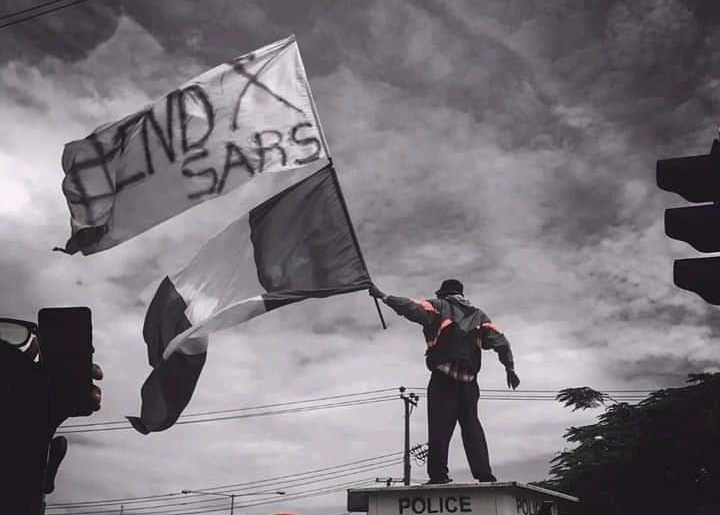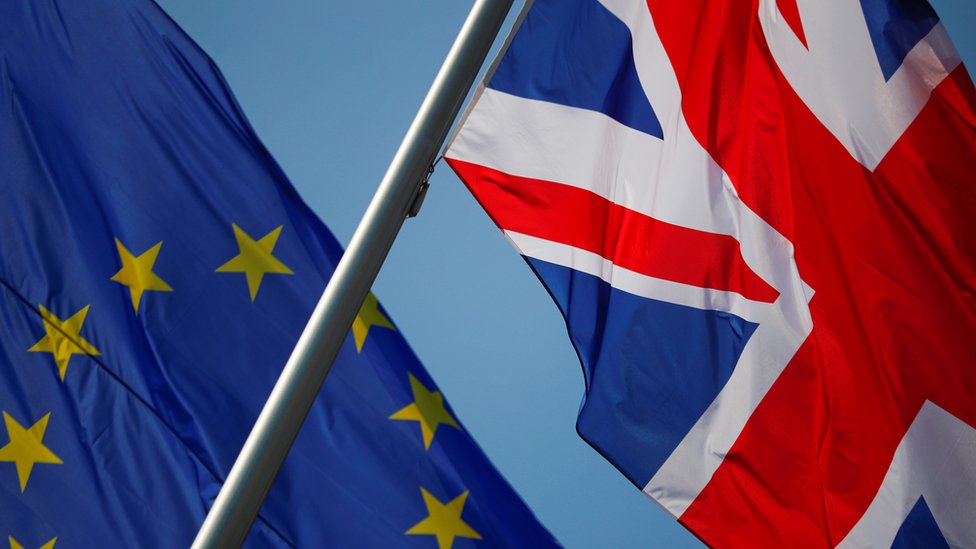The year 2020 threw everything in its arsenal at the world but humanity stood strong. The year was dramatic as everything that ordinarily should happen in 10 years happened in the year.
From politics in Nigeria to the U.S. presidential election, to the death of notable personalities, especially due to the outbreak of the Coronavirus disease (COVID-19), the world actually saw the worse that could happen in a decade.
In this year in review list, TheNewsGuru.com (TNG) brings you the 20 defining moments of the year 2020.
COVID-19
First off on the list is the COVID-19 that took the world by storm. COVID-19 came to redefine the way humans live and interact. COVID-19 was first reported in China, but it has now spread throughout the world.
It was first reported in Nigeria in February and since then it has killed notable personalities in the country, including the former Chief of Staff to President Muhammadu Buhari, Abba Kyari.
On 9 March, President Buhari established a Presidential Task Force for the control of the virus in the country. At a point, the federal government declared total lockdown, announcing palliatives for Nigerians. Where palliatives never got to some Nigerians, the food items were locked down in warehouses in some States.
Although several vaccines have been invented, the COVID-19 is still very much around with a new variant as nations have started announcing new lockdown measures.
Senator Abaribe’s call for Buhari’s resignation
On January 29, the Nigerian Senate debated the security situation in the country with Senator Enyinnaya Abaribe calling on President Muhammadu Buhari to resign over the failure of his government to tackle the security challenges confronting the country.
It was after Senator Abdullahi Yahaya raised a motion on an urgent need to restructure, review and reorganize the current security architecture to address the nation’s security challenges that all hell broke loose on the floor of the Senate and the debate ensued.
“The hard work that was supposed to be done in Nigeria is not done. We will ask this government to resign because it can no longer do anything in the country.”- Senator Enyinnaya Abaribe.
However, the security challenges of the country persist even as recently some over 400 schoolboys were abducted in Katsina State while Buhari was vacationing in the State.
Fani-Kayode’s moment of madness
Nigerians will never forget in a hurry Femi Fani-Kayode’s moment of madness when he verbally assaulted a Daily Trust correspondent, Eyo Charles at a press conference over a question.
The former Aviation Minister held a press conference in Cross River State at the end of his tour of States in the South-South region controlled by the People’s Democratic Party (PDP).
Fani-Kayode was confronted about who bankrolled the trips he had across Nigeria but instead of providing an answer, he lost his cool and called the journalist stupid.
Fani-Kayode literally rained brimstone, fire and lightning on the journalist, with the journalist coming out to say after the incident a “security aide” to the former minister walked up to him and began interrogating him.
The journalist said he had to hurriedly leave the hotel premises where the press conference held for safety, and that the former minister called his editor to demand for his sack.
Meanwhile, Fani-Kayode later said he met with some advisors over the rancour, and following which, he withdrew the word “stupid” which he used in his encounter with the journalist.
The former Minister hoped that withdrawing the word will assuage the pain and anger of anyone that was hurt or offended by the incident.
He later came out to say he was disappointed with himself and that what he did was undefendable.
U.S. 2020 presidential election
The U.S. 2020 presidential election is the most controversial in the history of the United States. It was the 59th quadrennial presidential election of the country, held on Tuesday, November 3, 2020.
The Democratic ticket of former vice president Joe Biden and incumbent U.S. senator from California Kamala Harris defeated the Republican ticket of incumbent president Donald Trump and vice president Mike Pence.
Trump became the first U.S. president since George H. W. Bush in 1992 and the eleventh incumbent in the country’s history to lose a bid for a second term, and Biden won the largest share of the popular vote against an incumbent since 1932.
The election saw the highest voter turnout since 1900, with each of the two main tickets receiving more than 74 million votes, surpassing Barack Obama’s record of 69.5 million votes from 2008. Biden received more than 81 million votes, the most votes ever cast for a candidate in a U.S. presidential election.
Before, during, and after Election Day, Trump and numerous Republicans attempted to overturn the results, alleging widespread voter fraud. However, Attorney General William Barr and officials in each of the 50 states found no evidence of widespread fraud or irregularities in the election.
Federal agencies overseeing election security said it was the most secure in American history.
Brexit
Brexit, a portmanteau of Britain and exit, is the withdrawal of the United Kingdom (UK) from the European Union (EU) and the European Atomic Energy Community on 31 January 2020.
To date, the UK is the first and only country formally to leave the EU, after 47 years of membership within the bloc, after having first joined its predecessor, the European Communities (EC), on 1 January 1973.
Following a UK-wide referendum in June 2016, in which 52% voted in favour of leaving the EU and 48% voted to remain a member, Prime Minister David Cameron resigned.
On 29 March 2017, the new British Government led by Theresa May formally notified the EU of the country’s intention to withdraw, beginning the Brexit process.
The withdrawal was originally scheduled for 29 March 2019. It was delayed by deadlock in the British Parliament after the June 2017 general election, which resulted in a hung parliament in which the Conservatives lost their majority but remained the largest party. This deadlock led to three extensions of the Article 50 process.
The deadlock was resolved after a subsequent general election was held in December 2019. In that election, Conservatives who campaigned in support of a revised withdrawal agreement led by Boris Johnson won an overall majority of 80 seats.
After the December 2019 election, the British Parliament finally ratified the withdrawal agreement. The UK left the EU at 11 p.m. GMT on 31 January 2020. This began a transition period that is set to end on 31 December 2020.
ASUU strike
https://twitter.com/ASUUNGR/status/1341663748558376963?s=19
In 2020, in the latest of its industrial action, the Academic Staff Union of Universities (ASUU) kept Nigerian students at home for over 9 months.
ASUU embarked on the industrial action on the 23rd of March 2020 owing to disagreements with the Federal Government, demanding for more funding for public universities and renegotiation of the 2009 FG/ASUU agreement.
Other demands of the union are outstanding earned academic allowances, the proliferation of universities by state governments and the constitution of visitation panels to federal universities.
ASUU also opposed the use of Integrated Personnel and Payroll Information System (IPPIS) in settling workers salaries.
The Minister of Labour and Employment, Senator Chris Ngige, while reporting on the offers made by the government to ASUU, said the government had earlier brought an aggregate offer of N50 billion to ASUU, N20 billion for revitalisation and N30 billion for earned allowances.
Ngige said in order to show good faith that the government is still with the lecturers on the issue of funding, a new proposal was made to increase the revitalisation fund from N20 billion to N25 billion and for the earned allowances to be raised to N40 billion immediate payment, making a total of N65 billion for revitalisation.
However, a report has it that ASUU rejected the amount at their meeting with the government side.
The union demanded N110 billion, which is 50 percent of a tranche of N220 billion it had earlier demanded but the federal government rejected, citing paucity of funds.
The disagreement resulted in another offer by the federal government team to raise the revitalisation fund to N40 billion while the earned allowances for unions remain N30 billion.
The federal government also gave assurances that it would address the pending issues of constituting visitation panels for federal universities and raising a new renegotiation team to begin talks with ASUU on the 2009 agreement.
It was based on the new proposal by the federal government that ASUU agreed to go back to brief its organs and to revert to the government on whether or not it has accepted the terms to call off the strike.
ASUU eventually called off the strike after the FG caved in to its demands with the only outstanding issue being the disagreement over the payment platform.
Meanwhile, ASUU it will go on strike without notice if the FG should to keep faith with the negotiations.
#EndSARS movement
#EndSARS is a decentralised social movement, and series of mass protests against police brutality in Nigeria. The slogan calls for the disbanding of the Special Anti-Robbery Squad, a notorious unit of the Nigerian Police with a long record of abuses.
The protests which takes its name from the slogan started in 2017 as a Twitter campaign using the hashtag #ENDSARS to demand the disbanding of the unit by the Nigerian government.
After experiencing a revitalisation in October 2020 following more revelations of the abuses of the unit, mass demonstrations occurred throughout the major cities of Nigeria, accompanied by vociferous outrage on social media platforms.
On the night of 20 October 2020, at about 6:50 p.m, members of the Nigerian Army opened fire at the Lekki toll gate in Lagos State. There are claims that some protesters were killed during the shooting.
About 28 million tweets bearing #EndSARS have been accumulated on Twitter alone. Solidarity protests and demonstrations by Nigerians in diaspora and sympathizers occurred in many major cities of the world.
The protest is notable for its patronage by a demographic that is made of entirely young Nigerians. The movement has since expanded to include demands for good and accountable governance.
Off mic vs soro soke generation
Soro soke (speak louder), represents agency activation of voice to know the unknown, clarify a confused state and challenge negligence, right denial and injustice. On the flip side is ‘off-the-mic’, a tactical strategy to conceal the truth, ignore a genuine concern, silent opposition, frame constructive criticism as ‘corruption is fighting back’ and tyrannise being accountable.
It was Minister of Niger Delta Godswill Akpabio while appearing before a National Assembly panel investigating alleged fleecing of billions of naira in the Niger Delta Development Commission (NDDC) who was instructed to ‘off-the-mic’ to prevent further disclosures or clarifications on the beneficiaries of NDDC contracts. Since then, ‘off-the-mic’ gained ascendancy in national discourse.
On the other hand, soro soke came up with the #EndSARS movement. (a behavioural disposition which oppresses, extorts, brutalises, denies rights, annihilates, victimises and ignores the victimisation of the vulnerable) and every ‘Sarsious’ character within and across institutions in Nigeria.
Laycon happened
In 2020, Laycon happened, winning the Big Brother Nigeria (BBNaija) reality TV show, coasting home with the grand prize of N85 million.
Laycon entered the show as the number nineteenth contestant on 19 July 2020, donning a jacket that attracted trolls on social media.
However, he soon established himself as a fan favorite. He became the first housemate of the season to be verified on Instagram on 22 July 2020. He broke record, becoming the first housemate in the show’s history to reach 1 million followers on Instagram while still in the house on 19 September 2020.
Born Olamilekan Moshood Agbeleshe on 8 November 1993 Laycon is a rapper, singer and songwriter. He is currently the youth ambassador of Ogun State, Nigeria since 6 October 2020.
During the finale of the show on 27 September 2020, he was declared the winner scoring a record 60% of the total votes cast and went home with the ₦85 million grand prize.
Entanglement
Jada Pinkett Smith made the word entanglement famous in 2020. Jada Pinkett Smith is wife of Will Smith.
Will Smith and Jada Pinkett Smith came together for a Red Table Talk on July 10, but the table was turned when he interviewed his wife about recent relationship rumors with singer August Alsina.
She cleared the air and described her previous relationship with the 27-year-old artist as an “entanglement.”
https://twitter.com/LorrdSky/status/1282355642154573824?s=19
Kobe Bryant
Kobe Bean Bryant’s death pained many. Bryant was an American professional basketball player. A shooting guard, he spent his entire 20-year career with the Los Angeles Lakers in the National Basketball Association.
Bryant died at age 41, along with his 13-year-old daughter, Gianna and seven others, in a helicopter crash in Calabasas, California.
Australian bushfires
Starting from September 2019, fires heavily impacted various parts of Australia. With nearly 80 percent of Australians affected either directly or indirectly, the 2019–20 Australian bushfire season became colloquially known as Black Summer.
Throughout the summer, hundreds of fires burnt, mainly in the southeast of the country. The major fires peaked during December–January.
As of 9 March 2020, the fires burnt an estimated 18.6 million hectares, destroyed over 5,900 buildings, including 2,779 homes and killed at least 34 people.
Nearly three billion terrestrial vertebrates alone – the vast majority being reptiles – were affected and some endangered species were believed to be driven to extinction.
At its peak, air quality dropped to hazardous levels in all southern and eastern states. By 7 January 2020, the smoke had moved approximately 11,000 kilometres across the South Pacific Ocean to Chile and Argentina.
Economists estimated that the Australian bushfires may cost over A$103 billion in property damage and economic losses, making the bushfires Australia’s costliest natural disaster to date.
Deadly volcanic eruptions
There were at least 67 confirmed volcanic eruptions at some point during 2020 from 63 different volcanoes. 22 of those were new eruptions that started during the year. Deadly volcanic eruptions majorly affected New Zealand and the Philippines in 2020.
Shooting down of Ukrainian airlines plane
Ukraine International Airlines Flight 752 was shot down shortly after takeoff from the Iranian capital, Tehran, killing all 176 people on board.
For several days, no one took responsibility, but signs pointed toward it being struck by a missile. Eventually, Iran admitted it had targeted the plane after mistakenly believing it was a U.S. missile.
Killing of Qasem Soleimani
Qasem Soleimani was an Iranian major general in the Islamic Revolutionary Guard Corps and, from 1998 until his death in 2020, commander of its Quds Force, a division primarily responsible for extraterritorial military and clandestine operations. In his later years, he was considered by some to be the second most powerful person in Iran.
Soleimani was assassinated in a targeted U.S. drone strike on 3 January 2020 in Baghdad, which was approved by U.S. President Donald Trump.
President Trump authorized the killing of Soleimani in June 2019 on the condition that he had been involved in the killing of many Americans, a decision backed by U.S. Secretary of State Mike Pompeo. In making the 2020 strike, the Pentagon focused on Soleimani’s past actions and on deterring future such actions.
The strike that killed Soleimani followed attacks on the American embassy in Baghdad by supporters of an Iran-backed Iraqi Shia militia and the shooting down of the Ukrainian airlines plane in Iran’s capital.
Fears of World War IV heightened following the killing of Soleimani but the fears soon doused down as the U.S., Iran and Iraq piped low.
Drought
Drought is a prolonged dry period in the natural climate cycle that can occur anywhere in the world. It is a slow-onset disaster characterized by the lack of precipitation, resulting in a water shortage. Drought can have a serious impact on health, agriculture, economies, energy and the environment. An estimated 55 million people globally are affected by droughts every year but in 2020, droughts took several parts of the world by storm. Parts of the U.S., Southeast Asia and Australia were badly affected.
Buhari’s fight against corruption
President Buhari came into power with the promise to fight corruption. In the year, Ibrahim Magu, the former acting chairman of the anti-graft agency, Economic and Financial Crimes Commission (EFCC) was made to face a presidential probe panel.
Magu eventually became the storied hunter that was hunted. He was subsequently dropped from his position after he was unable to satisfy the probe panel.
Magu was hunted down on Monday, July 6, 2020, with arrest or invitation, on a major road in Abuja, as he left his office, and heading to the Police Headquarters, with his security outfit.
His car was flagged off the road by a Chief Superintendent of Police, who respectfully told the anti-corruption Czar that his attention was needed at the Presidential Villa to meet with some high crops of investigators.
The Chief Superintendent did not come alone. He came for the arrest [sorry – invitation] with his own security outfit; all fully armed with enough automatic weapons to counter any act of defiance.
Magu, however, as it was reported, humbly followed the junior Supol without much ado. The least is yet to be heard of the probe panel and Magu.
Meanwhile, Senator Orji Uzor-Kalu, who is the former Governor of Abia State, was incarcerated at the Kuje Correctional Centre for over six months.
The former Abia State Governor, who is a member of the APC, was convicted and sentenced for N7.1bn fraud last December, but had their case reversed by the Supreme Court in May 2020.
The Supreme Court declared Uzor-Kalu’s conviction void, saying the Federal High Court in Lagos acted without jurisdiction when it convicted Kalu.
According to the panel, the trial Justice Mohammed Liman was no longer a judge of the Federal High Court as at the time he sat and delivered the judgement that convicted Uzor-Kalu to 12 years in prison.
The Supreme Court averred that Justice Liman, having been elevated to the Court of Appeal before then lacked the powers to return to sit as a High Court Judge.
However, the EFCC has vowed to file new proceedings against the former Governor, who is now the Chief Whip of the Senate.
Senator Ali Ndume spent some nights at the Kuje correctional centre as well in 2020 after standing in as surety for Abdulrasheed Maina.
Maina, former chairman of the defunct Pension Reform Task Team, is under trial on a 12-count charge of fraud and money laundering involving about N2 billion.
The trial judge, Justice Okon Abang, had ordered the defendant, Maina to provide a serving senator as a surety for the bail granted to him.
Justice Abang had, following Maina’s repeated requests, varied the bail conditions twice, reducing the bail sum from the original N1bn to N500m with only one surety as opposed, two originally requested by the court.
The only surety who must be a serving senator must be ready to accompany the defendant to court and sign the court’s register of attendance for every hearing session, the judge had ordered.
Ndume who represents Borno South Senatorial District where Maina hails from later agreed to serve as the defendant’s surety.
However, Maina failed to answer his case and absconded to Niger Republic, where he was arrested and repatriated to Nigeria to face justice.
Obaseki joined PDP, Umahi left APC
Nigerians witnessed a lot of political drama in the year 2020. Notable is Godwin Obaseki leaving the All Progressives Congress (APC) to the the People’s Democratic Party (PDP) to win the State’s governorship election. APC favoured Pastor Osagie Ize-Iyamu who was previously in the PDP over Obaseki. The Pastor eventually became the flagbearer of the APC but was rejected by the people of Edo State in the long run. Obaseki while in APC for his first term in office had emerged victorious over Ize-Iyamu while he was the flagbearer of the PDP. How do one explain the dramatic turn of events better.
Also notable in 2020 is Governor Dave Umahi of Ebonyi State defecting from the PDP to the APC. An Umahi, who had said nothing would ever make him to join the APC.
A good number of Nigerian politicians also jumped boats in the course of the year.
Something happened to Lyon
In February 2020, David Lyon was fired by the Supreme Court after winning the November 16th, 2019 Bayelsa State governorship election.
Lyon won the All Progressives Congress (APC) governorship primaries in Bayelsa and soon after won the guber election but on the eve of his inauguration, when he was setting the stage and rehearsing how to take the oath of office, he was ousted.
The stage he set was used to inaugurate Douye Diri as the Governor of Bayelsa State.
The Supreme Court voided Lyon’s victory on the grounds that his running mate, Biobarakuma Degi-Eremienyo presented false personal information to contest the governorship election.
Something indeed happened to Lyon.
5G-COVID-19 conspiracy theory
5G is the newest, fastest type of cellular network, which began deploying globally in 2019. As is usually the case with new technologies, it has attracted its fair share of conspiracy theories.
The COVID-19 pandemic provided a very fertile ground for 5G conspiracy theory to thrive in 2020. Dangerous conspiracy theories soon went round, and unfortunately, many believed.
The pandemic sparked a wave of more insidious conspiracy theories, such as the false claim that 5G mobile networks spread and worsen the Coronavirus.
Some members of a frightened public, desperate for some sense of order, believed this deeply implausible lie, including Pastor Chris Oyakhilome.
This led to dozens of instances of arsonists setting fire to cell towers across Europe.
Many still believe COVID-19 vaccination is precursor to the mark of 666.
Bonus: Leap year
Everything was different about 2020, including having an extra day. 29th of February comes only every four years. COVID-19 took the best of the world not to fully appreciate the peculiarity of the day, and those born on the day.
Those born on #LeapDay are forced to celebrate their birthdays once every 4 years or will have to take their birthdays one day backward or one day forward.
The 24 hours tacked into every fourth year ensures our calendar stays in line with the Earth’s movement around the Sun.
With COVID-19, it was a leap year indeed!





